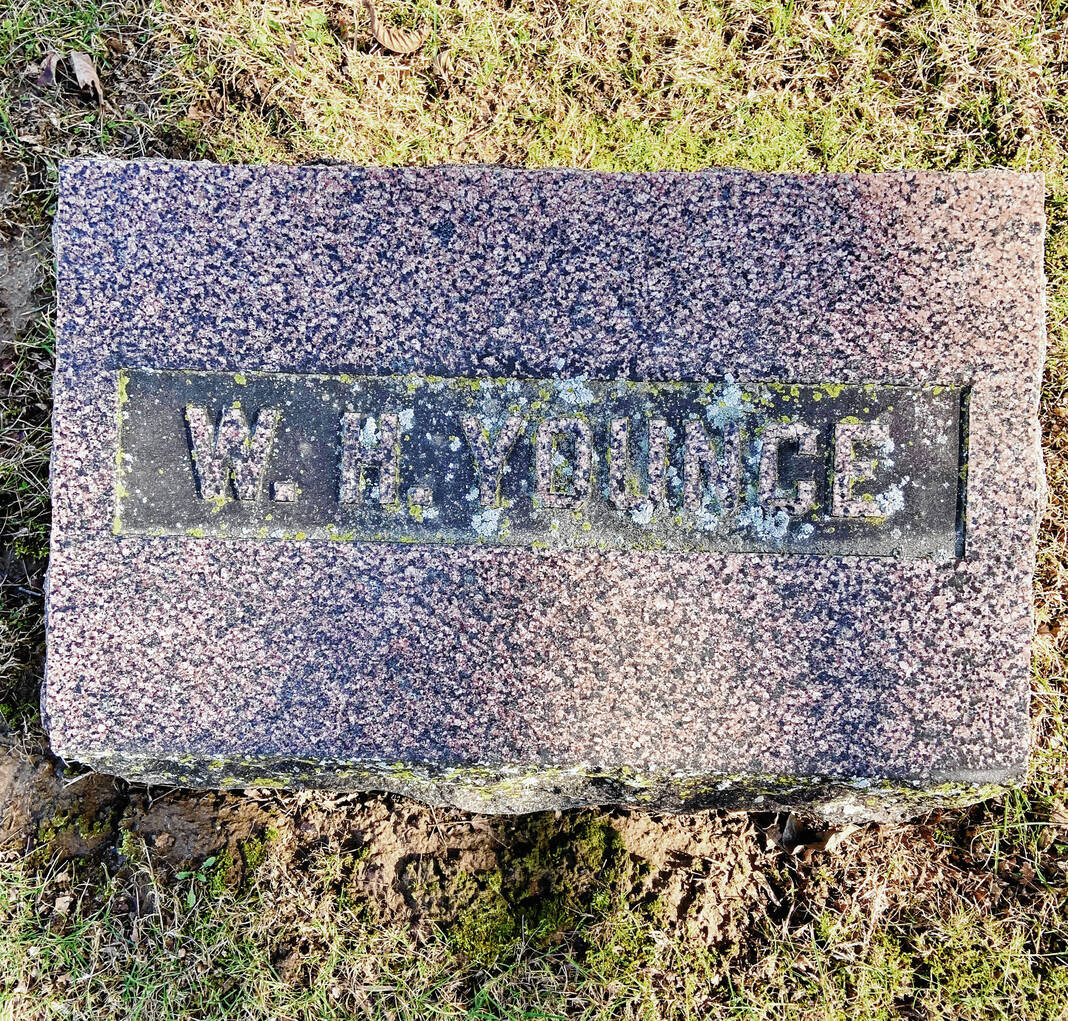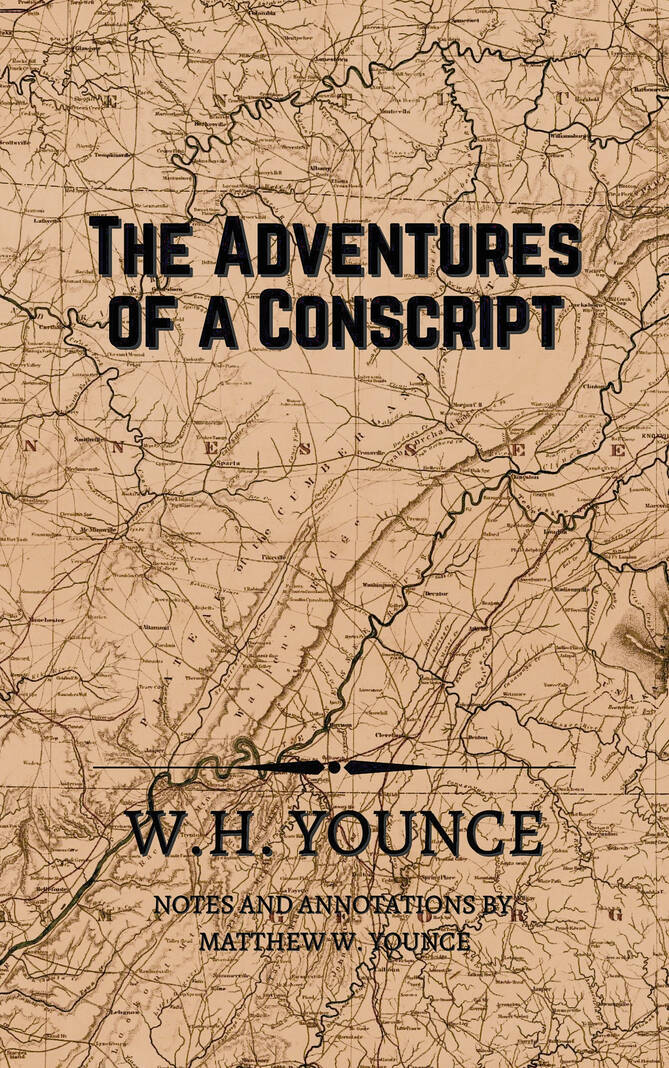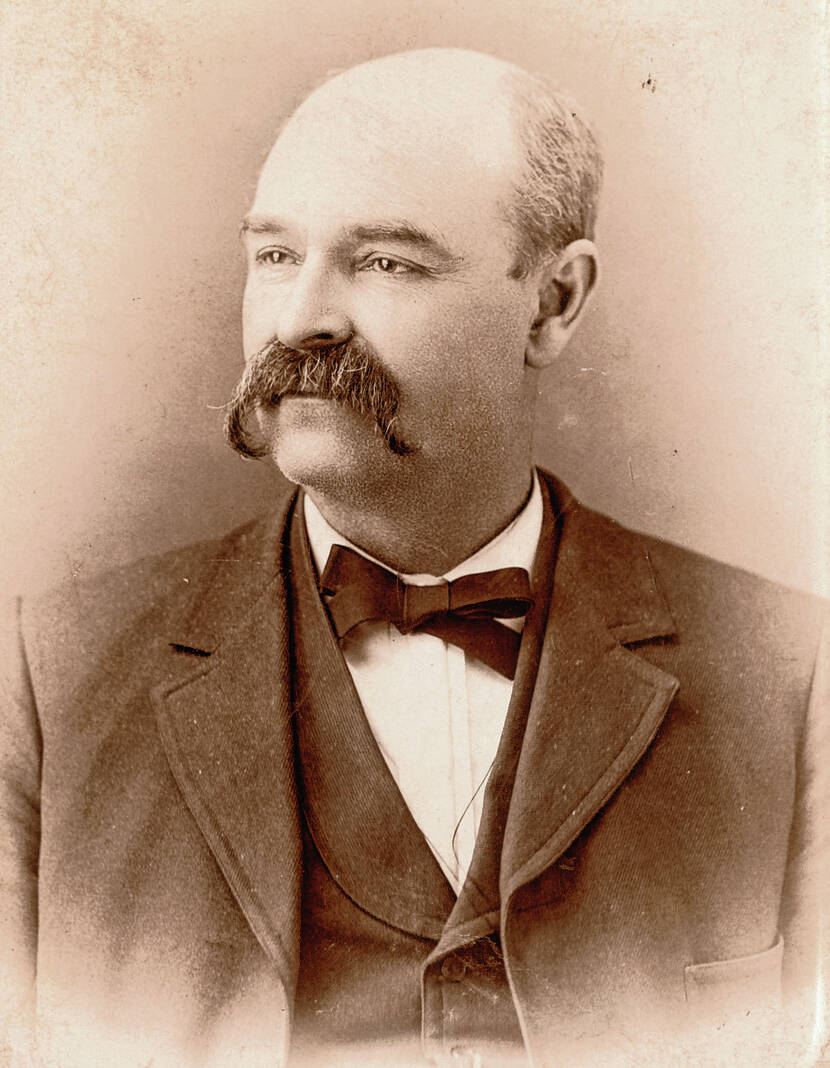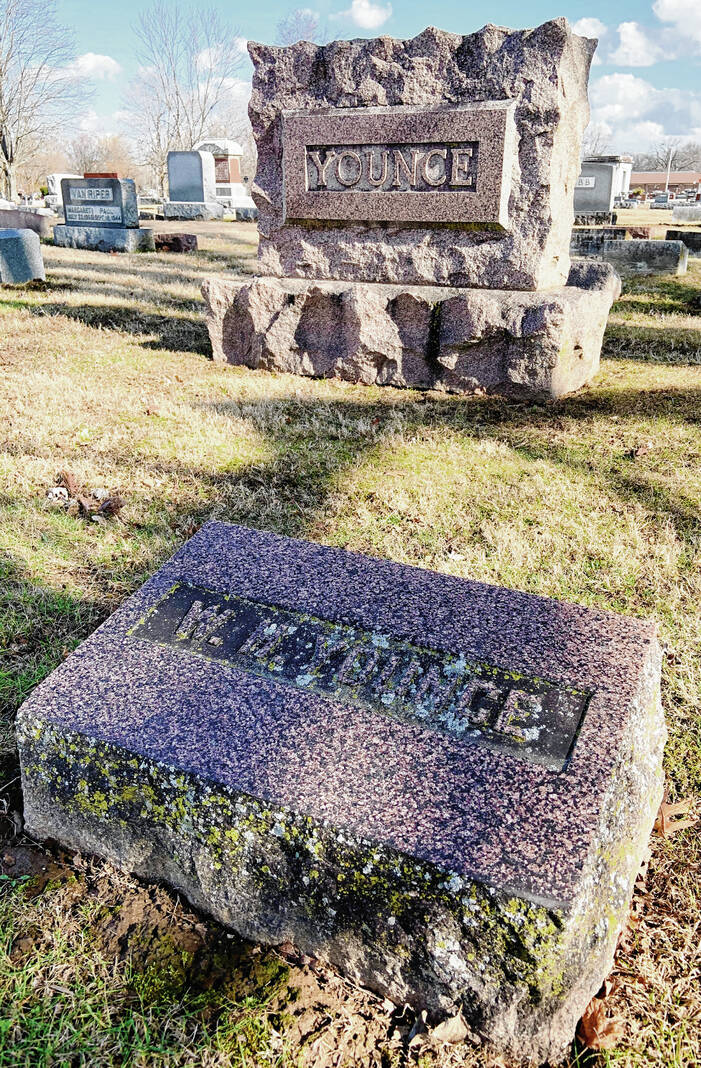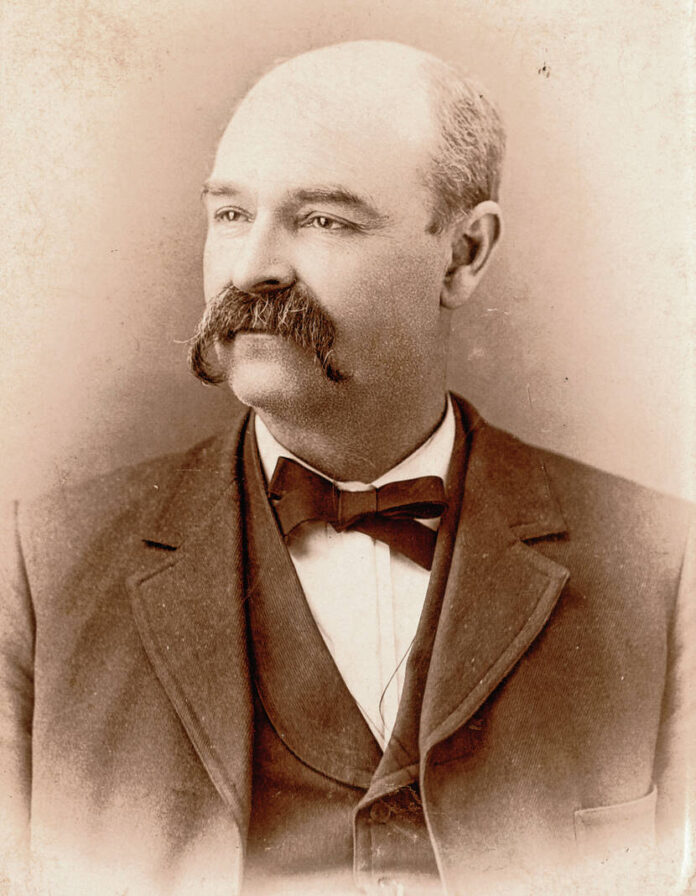
A portrait of W. H. Younce, a North Carolina native who escaped the South during the Civil War and settled in Franklin. He wrote about his experience in “The Adventures of a Conscript,” which has been republished by his distant cousin Matthew Younce.
SUBMITTED PHOTO FROM JOHNSON COUNTY MUSEUM OF HISTORY
The epic adventure had all the makings of a blockbuster movie.
William Henry “W. H.” Younce had a decision to make. The North Carolina native could stay in his home state and be conscripted into the Confederate Army during the Civil War. Or, he could follow his conscience, making the arduous journey to the North to avoid fighting for a cause he didn’t believe in.
What resulted was a story that, though unbelievable, is completely true. Younce made the trek, ending up in Franklin, where he eventually owned a shoe store and lived to be 79.
Younce documented his flight from the South in a published book, “The Adventures of a Conscript.” Though the initial printings of the tome is difficult to find, his ancestor has revived the book with added information, background and annotation.
Matthew Younce — W.H. Younce’s second cousin, four time removed — has republished a second edition of the book. To accompany it, he spent years adding family history, maps, photographs and other information to help round out the story.
“The Adventures of a Conscript” is now available to purchase on Amazon, and Matthew Younce hopes that its reprinting sheds a different perspective on a longtime Franklin resident as well as a perspective on those living in the South at the time of the Civil War.
“I hope other readers can appreciate being able to read and see, not a history book that is generic and telling facts, but the words of someone who was there saying why they believed what they did,” said Matthew Younce, who lives in Fredericksburg, Virginia. “You can see the take of a real person, not something from a history book — actually someone in the Civil War who could not fight for the South.”
W. H. Younce was born in 1842 in Ashe County, North Carolina. Growing up, the country was pulled further and further apart by the issue of slavery, and when Abraham Lincoln was elected president in 1860, one Southern state after another left the Union.
Despite the fervor sweeping his home state, Younce had no desire to fight for the Confederacy.
“I owe my allegiance to that country only that is represented by that beautiful emblem of the free, the Stars and Stripes. It is true this is my native land, and I love its mountains, but I cannot and will not fight for a Government that seeks to enslave me, and whose cornerstone is slavery,” he wrote, describing a conversation he had with a woman had at the start of his escape out of the South.
What followed was a journey that saw W. H. Younce be conscripted into the Confederate army, only to escape and be recaptured two different times. After escaping a third time, Confederate leaders ordered him to be shot on sight. He was able to make contact with Union forces, who advised him to travel to Indiana, and eventually, he arrived in Franklin in October of 1863.
W. H. Younce made his career in the shoe business, having a shoe store in Franklin for 37 years on Jefferson Street. He served as president of the Mutual Building & Loan Association for 25 years, served as a city councilman for four years and was a member of the board of education for two terms. Younce belonged to Grace Methodist Church for 55 years, and was a Mason and a member of the Knights of Pythias lodge.
He died on May 27, 1922, and is buried in Greenlawn Cemetery in Franklin.
On Nov. 23, 1899, the first installment of W. H. Younce’s memoirs were printed in The National Tribune, a newspaper for veterans. His story ran for eight installments, and was compiled in 1901 in to a book, “The Adventures of a Conscript.”
Matthew Younce had learned about the book when playing around on the internet, typing in his name, but didn’t know much about it. He happened to come across a scanned copy of the book on the Internet Archive while doing family research in 2020.
“When COVID hit, and everybody was trying to come up with stuff to do while we were sitting at home, my wife and I decided to do genealogy research,” he said. “I was working through my ancestors, and happened to come across W. H. Younce from Franklin, Indiana. And came back to his book again.”
Though the book had been scanned in by the New York Public Library, the quality of the images was poor. The words were faded, and it was difficult to read.
Still, Matthew Younce was able to read the book. Each page pulled him deeper into the story.
“I got really into it. It was actually very interesting to read about someone who was actually in the Civil War, and was forced to fight for the Confederacy when he didn’t believe in it. And he had to do what he had to do to get out of it and run for the North,” he said.
Moved by the words of a distant cousin, Matthew Younce wished he had a physical copy of the book. So he investigated the process of self-publishing a copy of the book. At the same time, he wanted to supplement W. H. Younce’s original writings with other family information, maps, photographs and more.
Matthew Younce found an obituary in the Franklin Evening Post, and reached out to Linda Talley at the Johnson County Museum of History for help gleaning more information.
“She sent me some stuff — the city directory that showed me the address of his store and his house, a map to show where those buildings were, his obituary and his wife’s obituary. There were a lot of things filling in the details of what happened to him after the Civil War,” he said.
For Talley, the project was one of many opportunities they have at the museum to help others uncover their roots.
“I try to help people with whatever they’re asking us for, and we do the best we can. Most of the time, we find things,” she said. “I’m just happy when we find things for people, and he had specific information we could find.”
Matthew Younce added that information and more in appendices at the end of W. H. Younce’s original writings. He included photographs provided by the museum, and W. H. Younce’s journey.
Most importantly, he included a foreword that explained how important this project was to him. Growing up in Georgia, Matthew Younce was surrounded by monuments and statues memorializing Confederate heroes. He had always been taught in school that the Civil War was a conflict rooted in the fight for states’ rights.
The war was framed as the “Lost Cause,” and gave noble reasons for the existence of the Confederacy.
W. H. Younce’s experience proved that was untrue.
“It wasn’t like the South was justified in my history classes. But there was a discussion of that feeling that it was more than just slavery,” Matthew Younce said. “But as I’m reading this book, (William) was living in the South in 1860, saying that this is not what I believe, and slavery is the cornerstone of the Confederacy. It was different from what I’d heard in school.”
“The Adventures of a Conscript” was released on Dec. 12, and is available to order on Amazon. Matthew Younce is working to get physical copies to sell, including getting them to readers in Franklin who want to learn more about his cousin.
Seeing his work come to completion after years has been incredibly satisfying, he said.
“It’s really exciting to think that something I put together and was able to research, and now it’s a physical object I can hold in my hand,” he said. “The world can find it now.”
AT A GLANCE
“The Adventures of a Conscript”
What: The account of William Henry “W. H.” Younce, a North Carolina native forced into the Confederate army during the Civil War, and how he escaped to settle in Franklin.
When: Originally published in eight installments in The National Tribune, a newspaper for veterans, in 1899 and 1900. Printed as a book in 1901. Reprinted, with additional notes and annotations, in 2022 by Matthew Younce, a distant relative of W. H. Younce.
How to buy: Available online at http://www.amazon.com/Adventures-Conscript-Annotated-W-Younce/dp/B0BR7DX2RW


